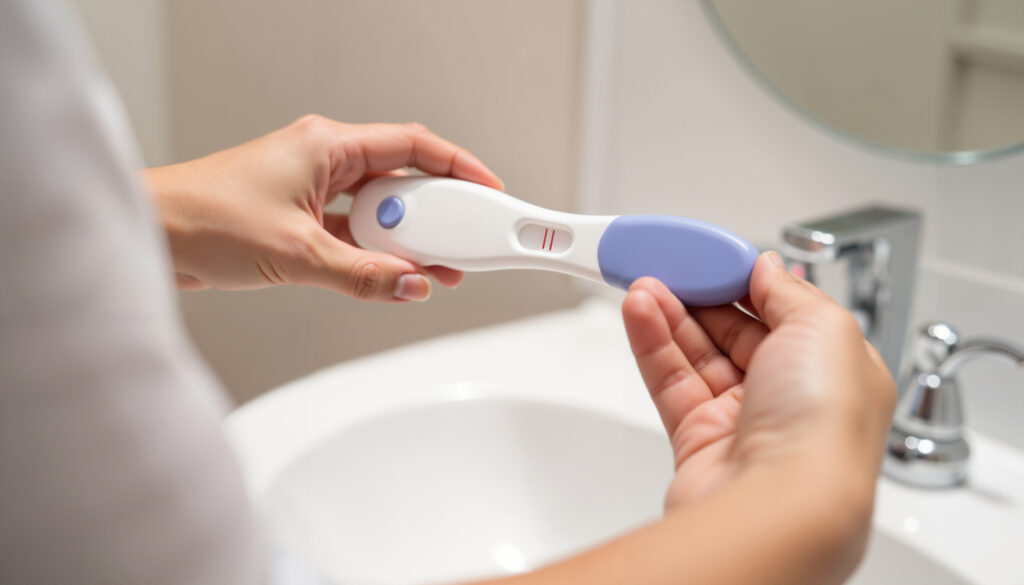Can You Have Children After You Have Died?

In the spring of 2023, the world was captivated (and divided) by the story of the Spanish actress Ana Obregón, who revealed that she had used her late son’s frozen sperm and a donor egg to create a child through surrogacy. The baby, who was born in Miami, was introduced to the world not as Obregón’s daughter, but as her granddaughter. The beautiful baby girl was conceived after Obregón’s son died, fulfilling what she described as his “final wish”.
The story instantly drew international attention and raised complex questions about the boundaries of reproductive technology, the ethics of embryo creation, and the patchwork of international laws governing surrogacy and fertility treatment. It also resonated particularly with individuals who have turned to assisted reproductive technology (ART) to build families in the face of loss, illness, infertility, or logistical concerns.
For fertility lawyers, this case provides a rare and emotionally charged window into how love, grief, and science intersect in modern parenthood. In this week’s blog, we’ll explore what exactly went on with Obregón’s granddaughter, why it matters legally, and how this case represents a potential future in fertility law in New York and beyond.
The Story: From Grief to New Life
Ana Obregón’s son, Aless Lequio, passed away in 2020 at just 27 years old after a tragic battle with cancer. Like many young men facing chemotherapy and chronic illness, Aless decided to freeze his genetic material (his sperm) before treatment began. This decision represents the decisions of many to ensure that life events do not get in the way of their ultimate goal to have children.
When Aless ultimately lost his battle with cancer, his mother was understandably devastated. In the years that followed, Obregón found peace in the possibility of creating the child her son always wanted to have. Using his frozen sperm, a donor egg, and a surrogate in the United States, Obregón worked to bring baby Anita into the world three years later.
Since surrogacy is illegal in Spain, Obregón, like many other international couples, sought out her surrogacy journey in the States. She ultimately went with Miami, in the State of Florida, where gestational surrogacy is permitted and well-regulated. She has since adopted the child as her granddaughter, publicly stating that she was fulfilling Aless’s dream to become a father and carry on his legacy.
This is a story that’s both deeply personal and profoundly complicated. We are not here to judge, and neither should you. Instead, let’s focus on some of the legal and ethical questions that have been raised in the wake of this groundbreaking and headline-making decision.
The Legal Considerations: Whose Rights and Whose Wishes Control?
From a fertility law perspective, the Obregón case is a perfect storm for legal uncertainty, and represents a chance to set the scene for future cases that may come along. It sits at the intersection of reproductive rights, estate law, inheritance, and international family and fertility law. Each of these distinct considerations have their own considerations, but as experts in fertility law, let’s discuss the implications for fertility law.
The most pressing question is that of consent. Did Aless explicitly agree to have his genetic material used after his death? While Obregón has said it was his “last wish”, there is no publicly available documentation proving that consent. In most jurisdictions, including New York, this is relatively uncharted waters in reproductive law. Case precedent in New York, particularly in the Matter of Zhu, has indicated that where there is expressed desire to have biological children, and this desire is communicated to parents, that can show an adequate consent for posthumous third-party reproduction. However, it is important to remember that this is a case-by-case basis, and you should always speak with a qualified fertility law attorney, such as our office, to understand your rights and the facts of your particular case.
Without this consent, using a deceased person’s genetic material would expose clinics and even family members to legal liability. This is precisely why fertility lawyers urge clients to make advance decisions about what should happen to their genetic material in the event of death or incapacity.
The issue of legal parentage is equally thorny. Even if a child is successfully conceived, who is recognized as the parent? The biological father is deceased, the egg donor has waived rights, and the surrogate has no parental standing under US law if proper contracts are in place. That leaves Obregón, who is genetically the child’s grandmother, seeking legal recognition through adoption.
Cross-Border Chaos: When One Country’s Miracle is Another’s Crime
The case also underscores the chaos that can arise when cross-border surrogacy is involved. Spain prohibits all forms of surrogacy, viewing it as a violation of public policy. The United States, by contrast, allows surrogacy in many states, including Florida and New York, provided that specific statutory requirements are met.
This intersection creates a jurisdictional gray area, as a child legally born though surrogacy in one country, then returning to a country that does not legally recognize surrogacy can spark some questions regarding their legal recognition in their home country. In the case of Obregón, Spanish authorities initially questioned the legality of Obregón’s actions, prompting a national debate about whether the child should be recognized as her granddaughter under Spanish law.
In the United States, gestational carrier agreements, when properly drafted by a qualified surrogacy attorney, establish parental rights before birth, ensuring that the intended parents are listed on the child’s birth certificate. But in countries where surrogacy is banned, those documents may not hold any legal weight. As a result, for families who live international, or hold dual citizenship, this discrepancy can have real consequences, even with the potential for disputes over citizenship, inheritance rights, and parental recognition.
The Ethics of Creating Life After Death
Beyond the legal complexities lies a deeper ethical question: Should we create a child using the genetic material of someone who is no longer alive to consent, or even parent?
Bioethicists have long debated this issue. Some argue that posthumous reproduction can be a beautiful way to honor a loved one’s wishes and offer solace to grieving families. Others caution that it risks treating the child as a symbol of loss, rather than as an autonomous person.
The “best interest of the child” standard in New York compels us to ask whether the child’s emotional and social well-beign is being prioritized. Will that child grow up carrying the burden of being a memorial to someone they have not met? Or will they be surrounded by love and stability, and carry the knowledge that they are a beautiful recognition of modern medicine and the continuation of their deceased parent?
All of these questions are ones that the law is not fully equipped to answer. But, they are becoming increasingly urgent as fertility technology advances faster than legal and ethical frameworks can keep up.
What US Law Says About Posthumous Reproduction
In the United States, posthumous reproduction is largely governed at the state level. These cases have yet to rise to the level of the United States Supreme Court, which would have the potential to create a nation-wide precedent for all courts and constitutional precedent to follow. In general, consent is the determining factor. If a deceased individual has left written, informed consent for their gametes to be used after death, such as for genetic testing and experimentation, or posthumous reproduction, these cases are fairly straightforward. The informed consent will generally allow for the ultimate use of the genetic material to be legally recognized, so long as they follow any governing statutes on ethics and health regulation.
A key US Supreme Court case, Astrue v. Capato (2012), illustrates this well. In this particular case, a woman conceived twins using her late husband’s frozen sperm. When she applied for Social Security survivor benefits on their behalf, the Court denied her claim because the state’s intestacy laws did not recognize posthumously conceived children as heirs, unless this is specifically provided for. Since the late husband had not provisioned this in his will, and in a way that complies with State designated timelines, their right to survivor benefits was not honored. Without getting into the legal weeds too much on this, several states have developed statutes that highly regulate the inheritance rights of unborn children. New York, for example, has the Estates, Powers, & Trusts Law §4-1.3, which governs posthumously conceived children and their inheritance rights.
Beyond inheritance and possessory rights, though, the law is more or less silent at this point in time. If you have questions regarding inheritance rights for unborn children, or embryos created posthumously, you should always speak with an experienced estates attorney.
Wide Variation in The Law at The National Level
An example of the variation in State Law is clearly shown when looking State to State. For example, in California, the Robertson v. Saadat case departed from the New York Supreme Court’s ruling in the Matter of Zhu, as a California Court of Appeal ruled that a widow did not have the legal right to use frozen sperm for posthumous conception, absent explicit informed consent from the deceased to do so.
As a result, you need to speak with a qualified fertility law attorney, such as our office, to understand your rights and entitlement to posthumous reproduction. In addition to helping you understand your rights, an experienced New York fertility law attorney will work to ensure that your surrogacy journey complies with New York’s CPSA, which is explained in detail on our website here.
The clarity given by these fertility law attorneys is what families like Obregóns need when navigating multiple jurisdictions and identifying what the safest legal path is to parenthood, or in this case, grand-parenthood.
We’re Here For You
The Ana Obregón case is both deeply human and profoundly instructive. It reminds us that fertility law is not just about contracts, it’s about conscience. Whether a client seeks to preserve embryos, pursue surrogacy, or navigate posthumous reproduction, the role of a New York fertility lawyer is to ensure that love, loss, and legacy all find protection under the law.
As technology continues to push the boundaries of what’s possible, families and attorneys must walk hand in hand, ensuring that every decision (from sperm storage to surrogacy) is grounded in clear consent, legal foresight, and ethical integrity. At Douglas Fertility & Surrogacy Law Group, PLLC, we help clients build families with compassion, precision, and respect for both the law and the lives it touches. If you’re considering assisted reproduction, surrogacy, or fertility preservation, our team can help you understand your rights and responsibilities under New York law. Contact us today to get started envisioning your family.
As Obragón’s story shows, in matters of family and family creation, the law should never be an obstacle to love, it should be its guardian.
